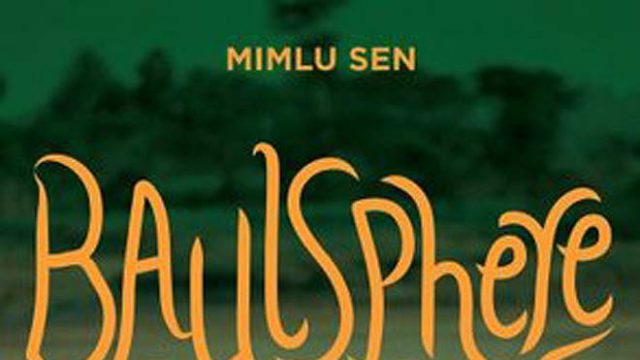Baulsphere is the literary debut of a 60-year-old grandmother who happens to be the ultimate outside-insider in the intimate world of Bauls, the carefree philosopher-bards of rural Bengal. Outside, because she is a world citizen, born of wealthy parents, brought up in Shillong and Calcutta, travelled to France at 20 and eventually architected a three-way relationship with a French man and woman, bearing two of their three joint children. Inside, because she was dazzled at 33 by Paban Das Baul at a performance in Paris, followed him through rural Bengal, was formally initiated as his Baul consort, and has been his companion for the past 27 years. This book, Mimlu Sen’s memoir, is really a travelogue of an extraordinary journey.
At that first concert in Paris, Sen “felt hit in the guts, stung by a stealthy serpent. I had held my breath too long.” Inhaling Paban, she leaves Paris behind and lets him lead her deep into his world: first to the festival at Kenduli, then a stint at Santiniketan. They eventually put down partial roots at a farmhouse in Boral, her father’s property on the outskirts of Calcutta, where they hold 12 consecutive annual Baul festivals. She does all this with two toddlers in tow, fortified by a daily puff of cannabis at noon.
This is mainly a love story. A love that defies forces imposed from without and deep ambivalence welling up from within, whose initial spark is renewed with each friction. She writes: “Sometimes, I was the avid city, he the relenting countryside; sometimes he was the demanding child and I the generous mother; and often, he was the king, I the fool.” Paban, crazy wind, swept her off her feet. Mimlu worked to search for a balance between being windswept and seeking out mercantile avenues for Paban’s creativity. Mimlu is Paban’s adhar, vessel; the word closest to ‘spouse’ in Baul-ese. She lays her body down as the bridge between his illiterate, itinerant world and the “tight-lipped oyster” of world music — the world of European concerts, collaborations with Mexican folk musicians and record deals.
During their brief stay at Santiniketan, their home is overrun with foreign visitors chasing the Baul mirage. Her take on them is withering. There is an acerbic account of one of Paban’s compatriots being engulfed by a Swedish beauty in search of the secrets of prem sadhana. Sen finds herself on the unenviable wedge between Paban and the foreign visitors vying for his attention, especially nubile white women. And yet, in the rural Baul milieu, she enjoys being treated not as a Bengali woman but rather a French urbanite, sharing the chillum with the men on the porch.
These are the ridges that Sen has had to constantly negotiate in the double-life that she has chosen and lived. In one, she is the Baul consort, engaged in jugal sadhana, accompanying Paban to rural festivals, playing ektara on stage. In another, she needs a rosewood cupboard with a full-length mirror and a turnkey lock. When the Baul world attacks, she channels her rational self to rise above this ragtag milieu. Yet, simultaneously appoints herself as their interpreter to her familiar urban world in France, an evangelist for the luminous essence of their way of life. Such are the fault lines that have propelled her.
The person who pops out from these pages glows with warmth, candour and spirit, entirely fearless in submitting to her passion to seek beauty in its lair. That she shares her extraordinary life is a gift enough; that she does so with radiant prose is a complete blessing. Sen’s prose flows like a drink of bel fruit seasoned by the summer sun: smooth with bits of fruity grit, sweet with bitter notes defining the edges and above all — nourishing.
What it means to be a Baul
A memoir by Mimlu Sen, whose restlessness took her to Paris, where she discovered Paban Das Baul of Bengal and finally married him.

What it means to be a Baul
What it means to be a Baul



